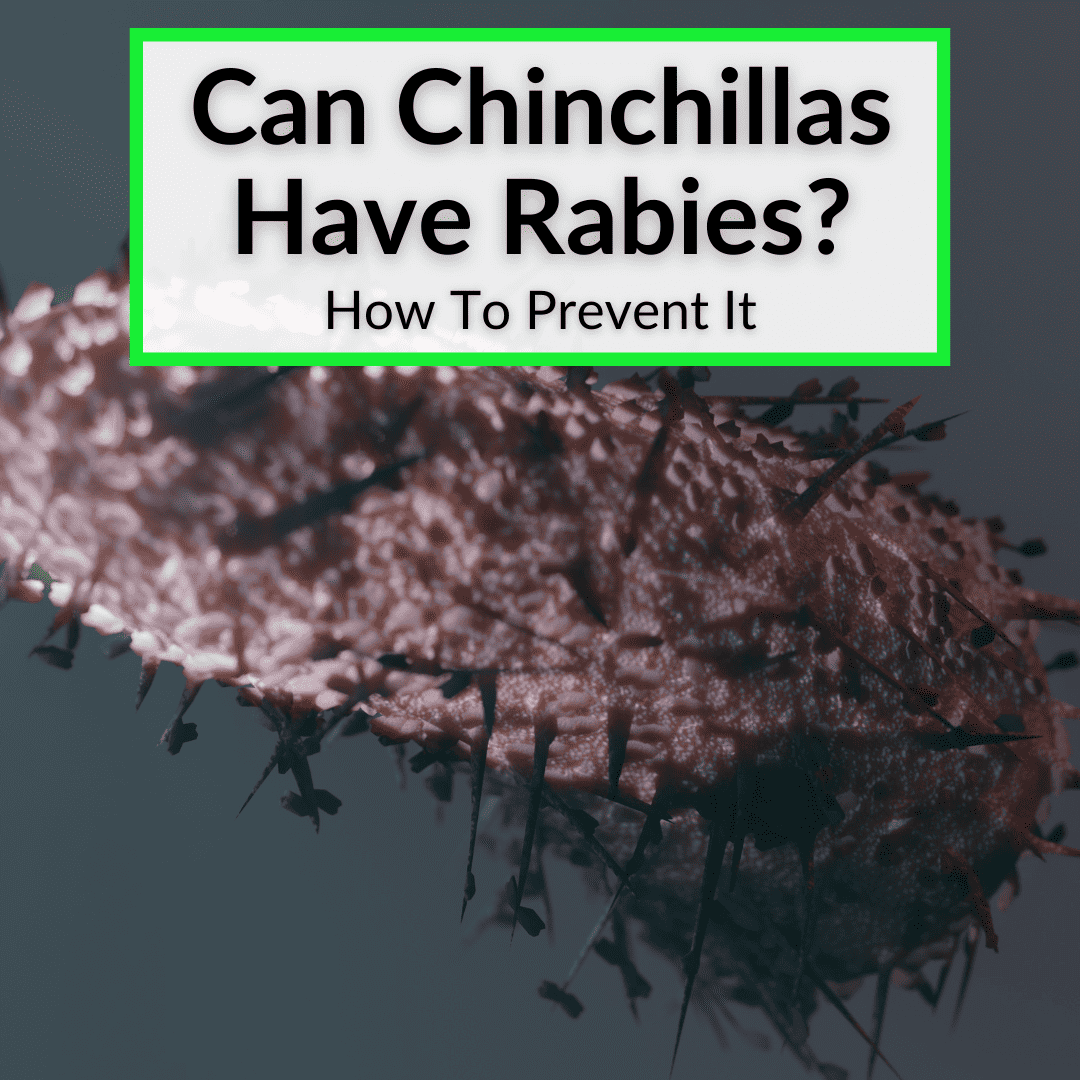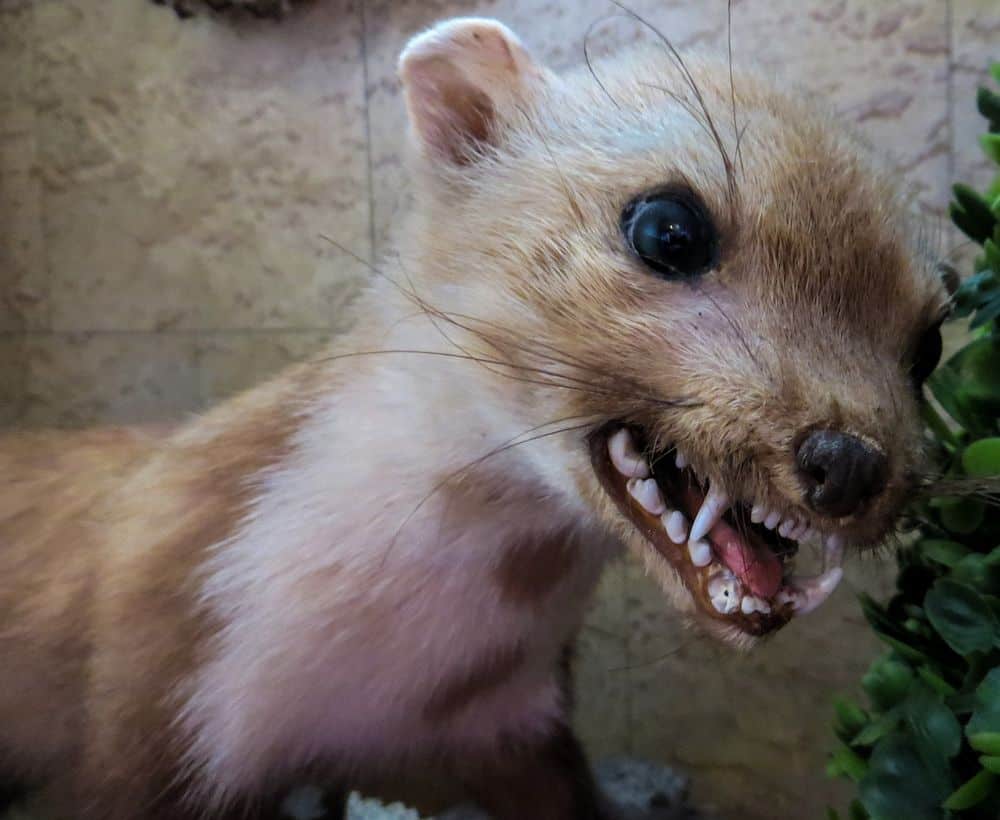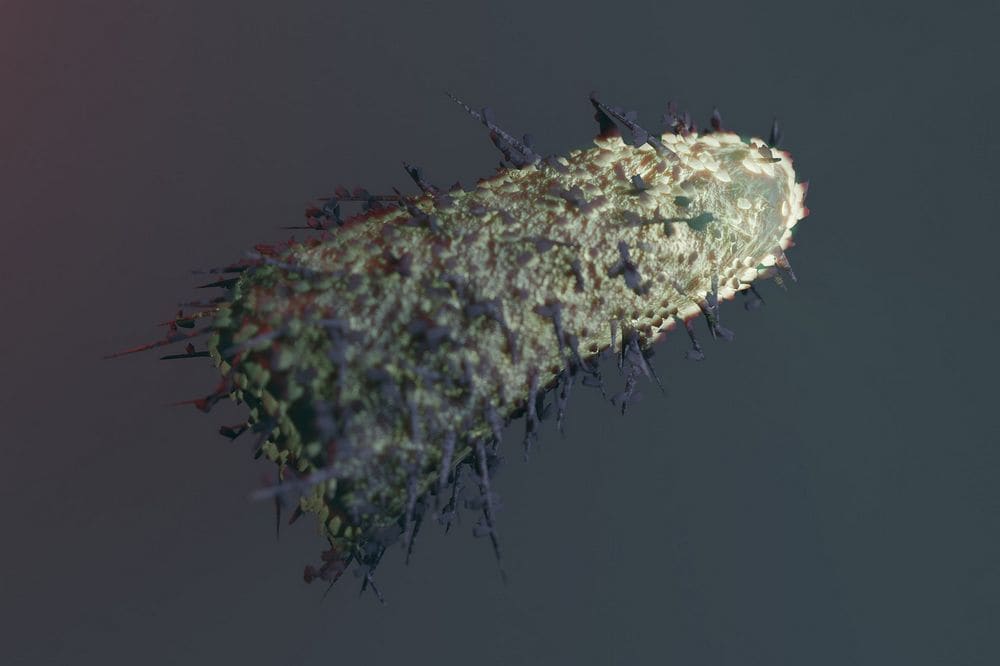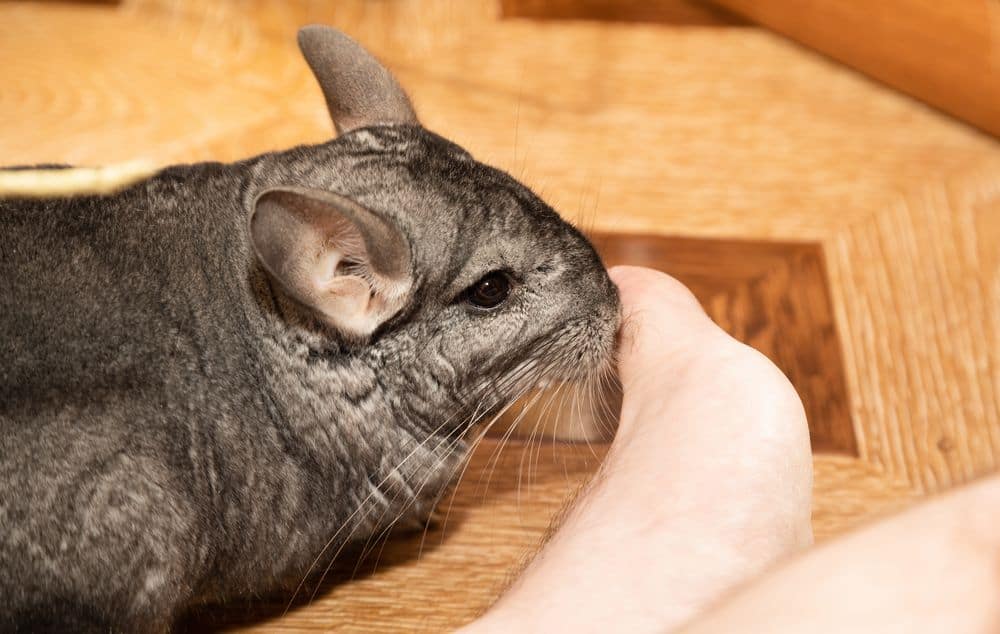
We also know that chinchillas are rodents just like rats.
So it makes sense to ask: can chinchillas have rabies?
It is possible, but not likely.
That means you should not have anything to worry about.
Unless you are doing some things very wrong.
Keep reading how you can easily avoid your chinchilla getting rabies by simply being a good, responsible chinchilla owner. If you care for your pet properly, you have nothing to worry about.
Contents
Can Chinchillas Have Rabies?
Yes, chinchillas can have rabies, although it is rare. They are not immune to the disease and can contract it, if they are bitten or scratched by an infected animal. Or if they come into contact with infected saliva or nervous tissue.
But chinchillas should not have any contact with infected animals or their saliva or tissue. Not if you care for your pet properly and keep it in good health. To do that, it pays to understand a bit more about this disease and how it works.
How Rabies Works

Rabies is a viral disease that affects the nervous system and can be fatal if left untreated. It is usually transmitted through the bite or scratch of an infected animal, but can also be spread through contact with saliva or nervous tissue.
The most common symptoms of rabies in chinchillas include lethargy, loss of appetite, difficulty walking, and seizures. These symptoms can develop anywhere from a few days to several weeks after the initial exposure to the virus. If you notice any of these symptoms in your chinchilla, you should seek veterinary care right away.
Prevention
Preventing rabies in chinchillas involves taking some simple precautions. First and foremost, it is important to keep your chinchilla separated from other animals that may carry the disease.
This includes wild animals like bats and raccoons, as well as household pets that have not been vaccinated against rabies. Rabies or not, you should always keep your chinchilla indoors and in a secure enclosure anyway, away from potential sources of exposure.
What Should I Do If My Chinchilla Gets Rabies?

If you suspect that your chinchilla may have been exposed to rabies, it is important to seek veterinary care immediately. Your vet will be able to perform a series of tests to determine whether your chinchilla has the disease and will be able to provide appropriate treatment. This may include a series of vaccinations and medications to help manage the symptoms of the disease.
Chinchillas that live indoors, away from wild animals and infected pests, are less likely to contract rabies. If kept indoors in a safe environment with limited interaction with other animals, especially wild animals, it’s unlikely for chinchillas to be exposed to rabies.
Domestic pets like dogs and cats are more prone to the virus because they have much more contact with wild animals than chinchillas do. Wild animals like bats, coyotes, and foxes are the main carriers of the rabies virus, due to their close proximity and interactions with other wildlife.
Chinchillas are unlikely to contract the virus unless bitten by another infected animal. And that is not something that will happen if you chinchilla spends its time safely inside your home. This is just one of many reasons pet chinchillas should not be outside.
Can You Get Rabies From a Chinchilla?

The good news is, it’s not likely that you will get rabies from a chinchilla, even if you suffer a bite wound that breaks the skin. Again, it is highly unusual for a chinchilla to carry the disease, since they are indoor animals and have no interaction with wild animals
I suppose you could get it from a wild chinchilla, but they do their best to avoid us, so it is just as unlikely.
To protect yourself and your chinchilla from rabies, it’s important to take preventative measures. This basically just means to keep your pet away from wild animals or any animals that may be infected with the disease.
Keeping it away from wild animals should be easy, since you should not be letting it outside. And it really should not have close unsupervised contact with other animals in the house either. If your chinchilla does come into contact with an infected animal, it’s important to contact your veterinarian right away.
Do Chinchillas Have Rabies?
Chinchillas can get rabies, but it is highly unlikely. It is even more unlikely for you to contract rabies from a chinchilla. Wild chinchillas will avoid you and your pet chinchilla should not be coming into contact with other animals anyway.
Chinchillas are not generally an animal you need to worry about in terms of transmitting dangerous diseases to us. It is possible for them to catch something like Covid, but they are not known carriers like other pets may be. They also can’t catch human colds and then pass them on to other humans.
Leave a Reply